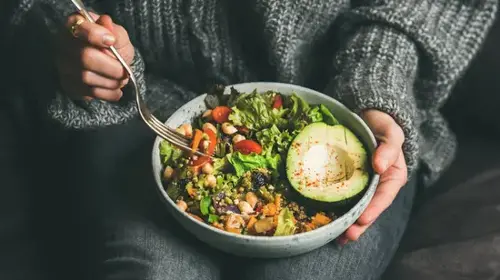
Eating right is one of the non-negotiable essentials when it comes to fitness goals. But in the age of social media, with every new trendy diet hack coming under the spotlight, it's easy to get swayed and follow nutrition tips which may not actually be worth the buzz. Not everything lives up to the hype, with mediocre results at the best.
Raj Ganpath, coach took to Instagram on March 18 to share the five overrated nutrition-related habits that one should not get worked up over. It's time to rethink and declutter your diet. He shared popular myths about foods and debunked it:
Superfoods
Certain foods are seen as ‘super,' with many people assuming they are miracle workers because of their nutrients. But is there truly such a thing? No food can single-handedly uplift your diet and transform you. A diet is a collective effort, not one food doing the heavy-lifting for you.
Raj explained, “ Superfood, no such thing. All foods are ‘super’ depends on how well you use them. All foods have energy and nutrients. Some have more energy and less nutrients. Some have less energy and more nutrients but it depends on what your needs are. Choose your foods based on your activity levels and your healthy goals. Don't expect a bunch of superfoods to just transform your diet into something amazing.”
Multivitamins
The rage on social media regarding multivitamins is unmatched. In fact, multivitamins are often marketed as an essential supplement, urging people to incorporate these. But in reality, it rarely has any real advantage if taken blindly without any deficiency.
The coach shared more on this and said, “There has been absolutely no research that proves that everyday consumption of multivitamins is helpful-zero. So if you are someone who has a deficiency, go ahead and supplement, but if you don't, do not pop multivitamins randomly.”
ALSO READ: Multivitamins to green tea: The Liver Doc shares 9 killer supplements that are dangerous
Breakfast
A disproportionate amount of importance is placed on breakfast. Breakfast is regarded as the most important meal of the day. However, the truth is that no single meal holds more importance than others. What matters most is overall nutrient intake.
Raj said, “It is not the most important meal of the day. Every meal is an opportunity to improve your health by consuming energy and nutrients. It's not just breakfast. If you're someone who like breakfast, go ahead and eat it. But if you're someone who's not a fan, who's not really hungry, feel free to skip it. If you think breakfast is what is going to fuel you for the first half of the day, go ahead and eat a big breakfast. But if you are someone who doesn't think so- a small breakfast, something protein, something vegetable or fruit will be more than enough."
ALSO READ: 10 high protein Indian breakfast ideas you must try: Nutritionist shares protein content of paneer paratha, omelette
Home food is healthy food
Home-made foods are prioritised always, with takeouts getting a bad rep. But this unconditional freepass to home food in reality is misleading.
Similarly, the coach too explained that it's not necessarily true. Further, he elaborated, “It depends on what we are using and how we are cooking the dish, the ingredients, the way of cooking actually determines whether a food is healthy or not- not where it is cooked. For instance, grilled chicken, sauteed vegetables and mashed potatoes will always be healthier than homemade paratha and chicken curry."
Fresh food better than leftovers
Leftovers receive a frown, dismissed as unhealthy, while fresh foods always take the spotlight. But this belief is actually outdated. Even realistically, making fresh foods every day isn't possible.
The coach said, “ This is a mindset from the past from a time when we did not know how to store food well, when we did not have refrigeration. Today, we have these capabilities and there is absolutely nothing wrong with having leftover food. It does not lose nutrients.”
Note to readers: This article is for informational purposes only and not a substitute for professional medical advice. Always seek the advice of your doctor with any questions about a medical condition.